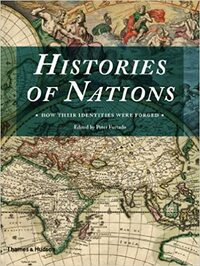Take a photo of a barcode or cover
challenging
informative
medium-paced
Minor: Genocide, Slavery, Xenophobia, Police brutality, Religious bigotry, Colonisation, War, Classism
informative
reflective
slow-paced
informative
slow-paced
I enjoyed getting to learn small snippets of so many countries I otherwise would never have learned about. Brazil and Mexico chapters were a highlight.
The chapters all being written by different authors was great to hear a range of perspectives but also a little jarring jumping from different styles and tones.
The editing wasn’t great. Some of the sentences were extremely long, I felt like I was running out of breath trying to keep up. My copy published by Thames & Hudson also had quite a lot of spelling and grammar errors.
The chapters all being written by different authors was great to hear a range of perspectives but also a little jarring jumping from different styles and tones.
The editing wasn’t great. Some of the sentences were extremely long, I felt like I was running out of breath trying to keep up. My copy published by Thames & Hudson also had quite a lot of spelling and grammar errors.
challenging
informative
reflective
slow-paced
medium-paced
Very very disappointed with this. What could be an interesting topic reads like chapters of Wikipedia and chatGPT combined.
challenging
informative
reflective
slow-paced
Really ambitious project that in my opinion did not live up to the hype. I think Mr. Furtado should have either picked less countries and have a better in depth analysis or cram in less information with each chapter.
The variety of historical periods covered in the chapters, and the events that the authors had chosen to include were intriguing. I enjoyed the fact that each essay was concise enough that I could read about a different country each day on my commute.
informative
reflective
medium-paced
informative
medium-paced








